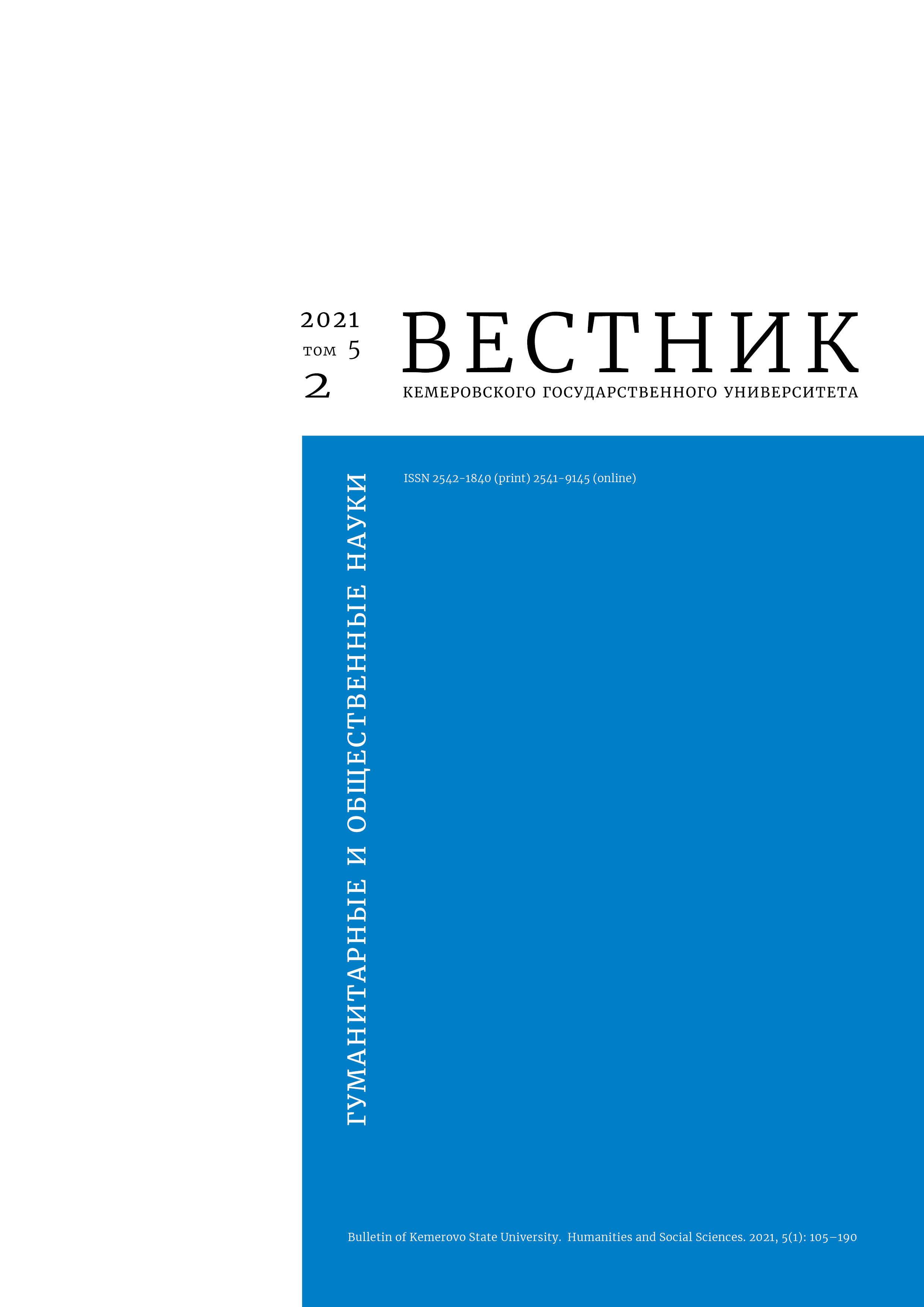St. Petersburg, Russian Federation
The present research featured how learning a foreign language in small groups under the guidance of a student with leadership qualities improves professional vocabulary. Such ESL classes proved useful for students majoring in management. Their work was organized in such a way that students' roles were close to their personal characteristics, i.e. action-, people-, and thinking-oriented. A diagnostic test revealed the students' level of proficiency in English. A psychological training made it possible to identify potential leaders. The students in the experimental group were divided into small subgroups and had to master professional vocabulary under the guidance of the leader. In the control group, the subgroups consisted of either leaders or subordinates. Vocabulary acquisition in the experimental subgroups appeared to be 25 % higher than in the control subgroups. Therefore, teamwork under the guidance of a leader proved quite effective.
collaborative learning, psychological training, a small group, personality traits, leadership skills, professional vocabulary
1. Laal M., Laal M. Collaborative learning: what is it? Procedia - Social and Behavioral Sciences, 2012, 31: 491-495. DOI:https://doi.org/10.1016/j.sbspro.2011.12.092
2. So H.-J., Brush T. A. Student perceptions of collaborative learning, social presence and satisfaction in a blended learning environment: Relationships and critical factors. Computers & Education, 2008, 51(1): 318-336. DOI:https://doi.org/10.1016/j.compedu.2007.05.009
3. Scherbakov S. V. The complementarity of interpersonal relations and the social intelligence of students. Liberal Arts in Russia, 2013, 2(5): 459-481. (In Russ.)
4. Cogburn D. L., Levinson N., Ramnarine-Rieks A. U., Vasques F. E. A Decade of Globally Distributed Collaborative Learning: lessons learned from cross-national virtual teams. Proceedings of the 2010 43rd Hawaii International Conference on System Sciences, Koloa, 5-8 Jan 2010. Koloa, 2010. DOIhttps://doi.org/10.1109/HICSS.2010.11
5. Al-Rahimi W. M., Othman M. S., Musa M. A. Using TAM model to measure the use of social media for collaborative learning. International Journal of Engineering Trends and Technology, 2013, 5(2): 90-95.
6. Aritzeta A., Swailes S., Senior B. Belbin's team role model: development, validity and applications for team building. Journal of Management Studies, 2007, 44(1): 96-118. DOIhttps://doi.org/10.1111/j.1467-6486.2007.00666.x
7. Al Dababseh M. F., Ay M. K., Abu Altaieb M. H., Hammouri W. Y., Abu Areeda F. S. The relationship between psychological compatibility and academic achievement in swimming. Journal of Human Sport and Exercise, 2017, 12(2): 396-404. DOI:https://doi.org/10.14198/jhse.2017.122.16
8. Nestsiarovich K., Pons D. Team role adoption and distribution in engineering project meetings. Behavioral Sciences. 2020, 10(2). DOI:https://doi.org/10.3390/BS10020057
9. Sadler P., Woody E. Interpersonal complementarity. Encyclopedia of personality and individual differences, eds. Zeigler-Hill V., Shackelford T. K. Cham: Springer, 2017. DOI:https://doi.org/10.1007/978-3-319-28099-8_2278-1
10. Tuckman B. W., Jensen M. A. C. Stages of small-group development revisited. Group & organizational studies, 1977, 2(4): 419-427. DOI:https://doi.org/10.1177/105960117700200404
11. Page D., Donelan J. G. Team-building tools for students. The Journal of Education for Business, 2003, 78(3): 125-128. DOIhttps://doi.org/10.1080/08832320309599708
12. Orekhova D. A., Boitsova E. M., Skidanov V. A. Team formation and group dynamics. XXXVI Week of Science at St. Petersburg State Pedagogical University: Proc. All-Russian Interuniversity Sci.-Techn. Conf. Students and Postgraduates, 26 Nov - 1 Dec 2007. St. Petersburg, 2009, pt. XIII. Available at: https://elib.spbstu.ru/dl/008022.pdf/download/008022.pdf (accessed 2 Apr 2021). (In Russ.)
13. Kelly A., Azaola M. C. The benefits of student involvement in leadership: an annotated bibliography of underpinning research. Student involvement in leadership, 2015. Available at: https://www.researchgate.net/publication/299428458_Student_involvement_in_leadership (accessed 26 Jun 2020).
14. Burovtseva E. S., Mitina I. D. Features of leadership in the student group: sociological and psychological aspects. Simbirskiy nauchnyj vestnik, 2018, (3): 84-89. (In Russ.)
15. Oliveira A., Boz U., Broadwell G. A., Sadler T. D. Student leadership in small group science inquiry. Research in Science and Technological Education, 2014, 32(3). DOI:https://doi.org/10.1080/02635143.2014.942621
16. Korytov V. V. Leadership and management: problem statement and development. Psikhologicheskaya nauka i obrazovanie PSYEDU.ru, 2010, (3): 1-13. (In Russ.)
17. Bityanova M. R. Social psychology, 2nd ed. St. Petersburg: Piter, 2008, 368. (In Russ.)
18. Andreeva G. M. Social psychology, 5nd ed. Moscow: Aspekt press, 2010, 362. (In Russ.)
19. Xie K., Hensley L. C., Law V., Sun Zh. Self-regulation as a function of perceived leadership and cohesion in small group online collaborative learning. British Journal of Educational Technology, 2019, 50(1): 456-468. DOI:https://doi.org/10.1111/bjet.12594
20. Matous P., Wang P. External exposure, boundary-spanning, and opinion leadership in remote communities: A network experiment. Social networks, 2019, 56: 10-22. DOI:https://doi.org/10.1016/j.socnet.2018.08.002
21. Bespalov D. V. The problems of psychological study of leadership in small groups. Shkolnye tekhnologii, 2015, (3): 160-165. (In Russ.)
22. Andriyanchenko E. G. Analysis of methods for studying informal leadership in domestic social psychology. Vestnik universiteta, 2012, (10): 260-264. (In Russ.)
23. Karpukhina E. A. Introduction to the theory and practice of leadership. Moscow: Ekon-Inform, 2006, 184. (In Russ.)
24. Raes E., Decuyper S., Lismont B., Van den Bossche P., Kyndt E., Demeyere S., Dochy F. Facilitating team learning through transformational leadership. Instructional Science, 2013, 41(2): 287-305. DOI:https://doi.org/10.1007/s11251-012-9228-3
25. Efremov E. G. Psychology of the working group. Omsk: Izd-vo OmGTU, 2007, 66. (In Russ.)
26. Bugakova E. S. Psychological and pedagogical support of marine institutions students in overcoming communicative barriers. News-Bulletn of Southern Federal University. Pedagogical Sciences, 2015, (5): 137-148.


















